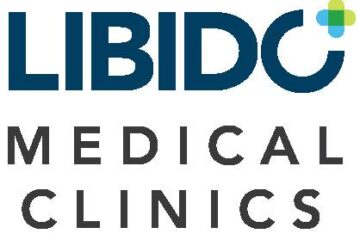Three basic dietary patterns are advised by the Canadian Cardiovascular Society (CCS) Clinical Practice Guidelines to reduce the risk of developing heart disease (Source: Getty Images/Thinkstock).
Your diet — the foods and drinks you eat, not short-term restrictive programmes — can impact your heart disease risk. Evidence-based approaches to eating are used by dietitians and physicians to prevent and treat cardiovascular (heart) disease.
The 2023 National Nutrition Month topic, Unleash the Power of Food, provides a perfect opportunity to learn more about these strategies and develop heart-healthier habits.
The Mediterranean Diet, Dietary Approaches to Stop Hypertension (DASH), and the Portfolio Diet are the three main dietary patterns suggested by the Canadian Cardiovascular Society’s (CCS) Clinical Practice Guidelines as ways to reduce the risk of developing heart disease.
The Mediterranean diet includes a rich source of seafood, whole grains, legumes, nuts, and colourful fruits and vegetables.
Studies have shown that this diet has various other health advantages and lowers the risk of having a heart attack or stroke, even if you already have heart disease. The specifics of this eating strategy are outlined in a resource provided by Dietitians of Canada.
The DASH Diet emphasises consuming lots of fruits, vegetables, whole grains, nuts, low-fat dairy, and low-sodium foods while reducing red and processed meats, added sugars, and sodium-containing foods.
This diet, which was initially created to treat high blood pressure, has a number of positive health effects, including the ability to reduce low-density lipoprotein cholesterol (LDL-C), an undesirable form of cholesterol. There are several resources on this dietary strategy at Heart & Stroke.
The Portfolio Diet was first created in Canada as a means of lowering cholesterol. It places a focus on nuts, viscous (or “sticky”) fibre sources like oats, barley, and psyllium, plant sterols, and healthy oils like olive oil, canola oil, and avocado. Plant proteins, such as soy and other legumes, are also highlighted.
Many studies have demonstrated that this diet lowers LDL-C and has a number of other health advantages. According to research, even little increases of the Portfolio Diet’s heart-healthy foods can have an impact; the more of these items you eat, the more you lower your risk of developing heart disease and LDL-C.
3 ways to unlock the power of food
1. Master and conquer the 90 per cent goal
Pick a goal you’re 90 per cent sure you can succeed at, while creating a plan to meet larger and harder goals in the future. This approach will help you build confidence in your skills and give you valuable information about what does and does not work for you.
Research shows starting with 90 per cent goals makes it more likely we meet future goals. A 90 per cent goal could be swapping out animal protein for plant protein — such as tofu or beans — at lunch on Mondays (Meatless Mondays).
Another example: use a meal delivery service that provides measured ingredients with plant-based recipes on Monday, Wednesday and Friday, so you can get some new ideas about how to incorporate more plants into your meals.
2. Why eliminate and restrict, when you can substitute?
Pick a “do instead” goal or work with a registered dietitian to substitute healthier choices for your current foods and drinks. Avoid setting goals that may make you focus MORE on the foods you’re trying to avoid (for example, “stop eating sugar”).
Instead, the substitution approach can include things like choosing lower-sodium soup or purchasing pre-cut vegetables with the aim of reducing your starch portion at meals by half. Canada’s Food Guide, Diabetes Canada and Heart & Stroke recommend that half your plate be vegetables.
3. Set value-based goals
Connect your goal to something that deeply matters to you. While long-term outcomes (such as heart disease) may be the impetus for change, research shows that things that matter to us right now motivate us most. Picking personal and meaningful reasons for change will help with sustained change.
You can create well-informed decisions and plans that are suited to your particular requirements, circumstances, preferences, traditions, abilities, and capabilities with the assistance of a nutrition professional, such as a registered dietitian and/or a psychologist.
source from: msn.com



